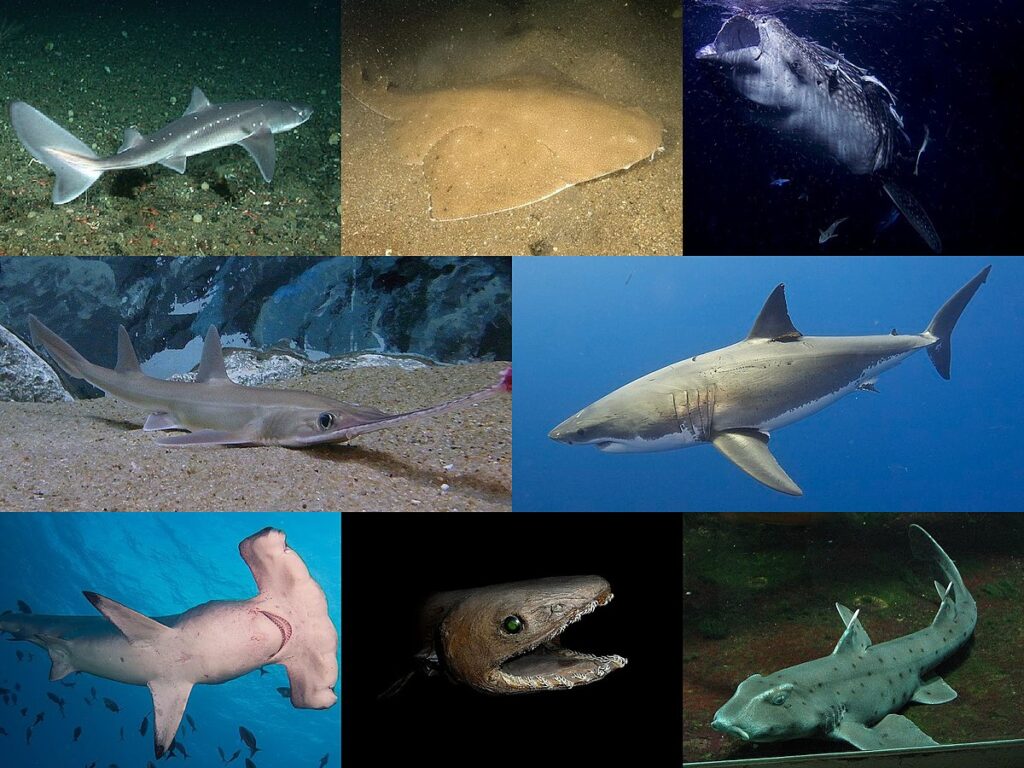Sharks are among the world’s largest vertebrates. They are carnivorous and feed on a wide range of foods.
They are found in every ocean on Earth. They have a number of unique feeding strategies, including suctioning water and filtering food through long filaments similar to those of whales.
They also give birth to live young, which are called pups in some species. Some of these pups have a placenta, and others lack one.
Overview of Shark as a Food Source
Sharks are apex predators and eat a wide variety of prey. Their diets vary depending on their species and where they live.
Large species primarily consume fish and marine mammals such as dolphins, seals, sea lions, porpoises and whales. They also eat a variety of mollusks and crustaceans.
They use their lateral line system, a series of pores that lets water flow through them, to sense their prey. They can detect vibrations in the water even if they’re 820 feet (250 meters) away from their target.
Like other elasmobranchs, sharks have skeletons made of cartilage. This material is much lighter than bone and helps them to stay afloat.
Culinary Uses and Traditional Dishes Featuring Shark
Shark is a delicious fish that can be grilled, poached, steamed or baked. A great source of protein, it is also extremely low in fat.
Traditional dishes featuring shark include hakarl (greenlandic shark), bake and shark, and a variety of shark fin soups.
The best way to prepare shark is by soaking it in milk for 24 hours to remove the strong ammonia type smell that it carries from its natal ocean.
Another fun shark-themed food is a small cup of Fake Shark Fin soup, a popular snack at Mosque Street in Hong Kong during the 1980s. Several spices are added to the broth including pepper, Zhejiang vinegar and sesame oil. The shark meat is a surprisingly tasty dish that should not be overlooked.
Availability and Market Trends of Shark Consumption
Sharks are a staple food for many populations around the world. While a high proportion of these species are harvested for their fins, there is also an increasing demand for meat.
Traditionally, fishermen have prioritized landings of the most valuable product from their catch to maximise vessel capacity and minimise discards. However, the emergence of new markets for shark meat has created greater incentives for full utilization and exposed the resource to a new source of demand that may strengthen its vulnerability to overexploitation.
This study investigates the availability and market trends of shark consumption, including factors that influence it in Brazil. It also identifies the composition of people and markets in the shark product supply chain, reasons why they interact, inefficiencies in the system and provides guidance to enhance current resource management strategies.
Health Benefits and Concerns
Shark meat is a healthy source of protein and omega-3 fatty acids. It’s also a good source of iodine, vitamin D, magnesium, and selenium.
In addition, it is a rich source of calcium. However, it should be consumed in moderation and is not recommended for pregnant women or children under two.
Like all fish, sharks contain a variety of toxins, including mercury, lead, and arsenic. These toxins are toxic to humans and accumulate in the body, causing a range of health issues.
Sustainability Issues
Sharks are a vital part of the marine ecosystem, but their strong demand coupled with poor fisheries management has led to high levels of overfishing. Currently, sharks and their relatives are facing an unprecedented global crisis in their 420 million year history on the planet.
In response to this crisis, many conservationists and seafood traders are calling for a ban on the harvesting of shark fins. But this is a difficult idea for many reasons.
While calls for a shark fin ban may help conserve some populations, it will also deplete other species in the process. This is why more research and evidence-based policies should be developed and applied to ensure the sustainability of shark populations.

